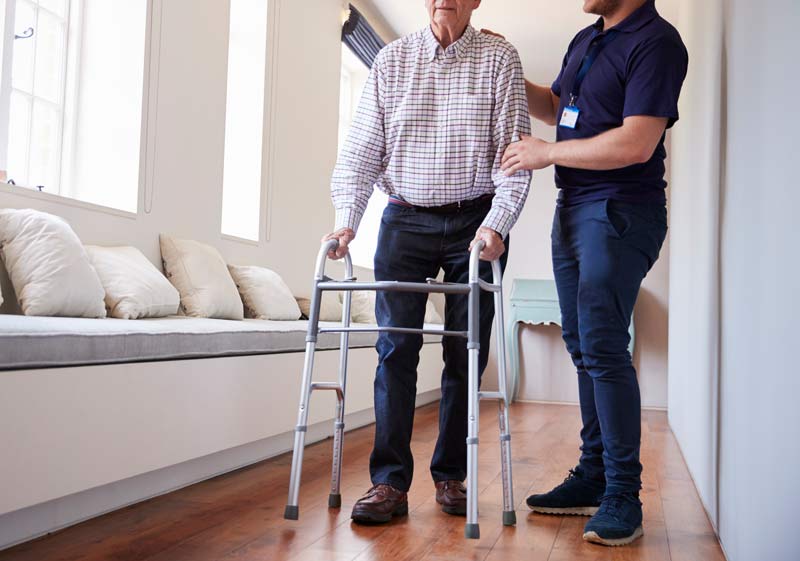Palliative Care and Hospice Care


What is palliative care?
Palliative care is specialized medical care for people living with a serious illness, such as cancer or heart failure. Patients in palliative care may receive medical care for their symptoms, or palliative care, along with treatment intended to cure their serious illness. Palliative care is meant to enhance a person’s current care by focusing on quality of life for them and their family.

Who can benefit from palliative care?
Palliative care is a resource for anyone living with a serious illness, such as heart failure, chronic obstructive pulmonary disease, cancer, dementia, Parkinson’s disease, and many others. Palliative care can be helpful at any stage of illness and is best provided soon after a person is diagnosed.
In addition to improving quality of life and helping with symptoms, palliative care can help patients understand their choices for medical treatment. The organized services available through palliative care may be helpful to any older person having a lot of general discomfort and disability very late in life.
What is hospice care?
Increasingly, people are choosing hospice care at the end of life. Hospice care focuses on the care, comfort, and quality of life of a person with a serious illness who is approaching the end of life.
At some point, it may not be possible to cure a serious illness, or a patient may choose not to undergo certain treatments. Hospice is designed for this situation. The patient beginning hospice care understands that his or her illness is not responding to medical attempts to cure it or to slow the disease’s progress.
Like palliative care, hospice provides comprehensive comfort care as well as support for the family, but, in hospice, attempts to cure the person’s illness are stopped. Hospice is provided for a person with a terminal illness whose doctor believes he or she has six months or less to live if the illness runs its natural course.
It’s important for a patient to discuss hospice care options with their doctor. Sometimes, people don’t begin hospice care soon enough to take full advantage of the help it offers. Perhaps they wait too long to begin hospice and they are too close to death. Or, some people are not eligible for hospice care soon enough to receive its full benefit. Starting hospice early may be able to provide months of meaningful care and quality time with loved ones.

Where is hospice care provided and who provides it?
Hospice is an approach to care, so it is not tied to a specific place. It can be offered in two types of settings — at home or in a facility such as a nursing home, hospital, or even in a separate hospice center.
Hospice care brings together a team of people with special skills — among them nurses, doctors, social workers, spiritual advisors, and trained volunteers. Everyone works together with the person who is dying, the caregiver, and/or the family to provide the medical, emotional, and spiritual support needed.
A member of the hospice team visits regularly, and someone is usually always available by phone — 24 hours a day, seven days a week. Hospice may be covered by Medicare and other insurance companies. Check to see if insurance will cover the person’s particular situation.
Contact
Dr. Michael Bishai
Long Island Internal Medicine, Geriatric Care, Hospice, and Palliative Medicine Physician
(516) 550-9865
Service Areas
Smithtown, NY
West Islip, NY
Bethpage, NY
Nassau & Suffolk County
